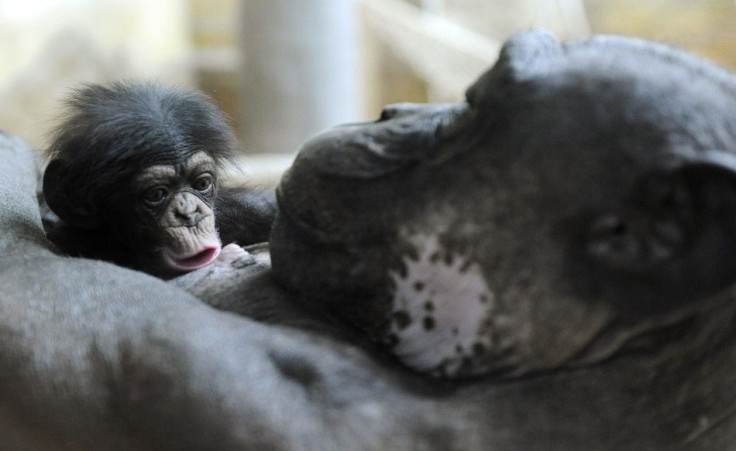Life Experience Helps Brain Growth of Humans and Chimpanzees

A new study has revealed that the brains of both human babies and chimp babies get developed by life experience, but compared to baby chimpanzees; brains of human babies develop much faster and increase in volume.
Researchers performed magnetic resonance imaging (MRI) scans on three chimpanzees' brains for six years, starting when they were 6 months old. After that they compared the scan results with MRI scans of human babies and children.
According to researchers, like humans, chimpanzees also start off with undeveloped forebrains. But what makes human brains cognitively advanced compared with the chimpanzees is the growth in the prefrontal cortex, a region of the brain, crucial for decision-making, self-awareness and creative thinking.
Tetsuro Matsuzawa, a zoologist at Kyoto University in Japan, who performed the study along with his colleagues, said that both human babies and chimpanzee babies share some similarities like inclination to smile and mutual gazes. However, baby chimps don't have the rapid development of brain, because of the slower growth in the volume of prefrontal white matter.
The study, appeared in the journal Current Biology, suggests "that a less mature and more protracted elaboration of neuronal connections in the prefrontal portion of the developing brain existed in the last common ancestor of chimpanzees and humans, and that this served to enhance the impact of postnatal experiences on neuronal connectivity."
Scientists also said that the rapid growth of the human prefrontal white matter during infancy may help the development of communication skills and complex social interactions, plus "the acquisition of experience-dependent knowledge and skills to shape neuronal connectivity".
Scientists plan to continue the study and hope to find out how human and chimpanzee brains vary after reaching young adulthood, despite having similarities during infancy.
MUST READ: Mysteries Behind the Darkest Planet Ever Discovered
© Copyright IBTimes 2024. All rights reserved.












